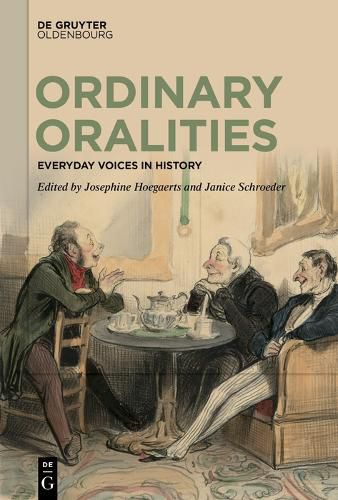Readings Newsletter
Become a Readings Member to make your shopping experience even easier.
Sign in or sign up for free!
You’re not far away from qualifying for FREE standard shipping within Australia
You’ve qualified for FREE standard shipping within Australia
The cart is loading…






This title is printed to order. This book may have been self-published. If so, we cannot guarantee the quality of the content. In the main most books will have gone through the editing process however some may not. We therefore suggest that you be aware of this before ordering this book. If in doubt check either the author or publisher’s details as we are unable to accept any returns unless they are faulty. Please contact us if you have any questions.
Histories of voice are often written as accounts of greatness: great statesmen, notable rebels, grands discours, and famous exceptional speakers and singers populate our shelves. This focus on the great and exceptional has not only led to disproportionate attention to a small subset of historical actors (powerful, white, western men and the occasional token woman), but also obscures the broad range of vocal practices that have informed, co-created and given meaning to human lives and interactions in the past. For most historical actors, life did not consist of grand public speeches, but of private conversations, intimate whispers, hot gossip or interminable quarrels.?
This volume suggests an extended practice of eavesdropping: rather than listening out for exceptional voices, it listens in on the more mundane aspects of vocality, including speech and song, but also less formalized shouts, hisses, noises and silences. Ranging from the Scottish highlands to China, from the bedroom to the platform, and from the 18th until the 20th century, contributions to this volume seek out spaces and moments that have been documented idiosyncratically or with difficulty, and where the voice and its sounds can be of particular salience. In doing so, the volume argues for a heightened attention to who speaks, and whose voices resound in history, but refuses to take the modern equation between speech and presence/representation for granted.?
$9.00 standard shipping within Australia
FREE standard shipping within Australia for orders over $100.00
Express & International shipping calculated at checkout
This title is printed to order. This book may have been self-published. If so, we cannot guarantee the quality of the content. In the main most books will have gone through the editing process however some may not. We therefore suggest that you be aware of this before ordering this book. If in doubt check either the author or publisher’s details as we are unable to accept any returns unless they are faulty. Please contact us if you have any questions.
Histories of voice are often written as accounts of greatness: great statesmen, notable rebels, grands discours, and famous exceptional speakers and singers populate our shelves. This focus on the great and exceptional has not only led to disproportionate attention to a small subset of historical actors (powerful, white, western men and the occasional token woman), but also obscures the broad range of vocal practices that have informed, co-created and given meaning to human lives and interactions in the past. For most historical actors, life did not consist of grand public speeches, but of private conversations, intimate whispers, hot gossip or interminable quarrels.?
This volume suggests an extended practice of eavesdropping: rather than listening out for exceptional voices, it listens in on the more mundane aspects of vocality, including speech and song, but also less formalized shouts, hisses, noises and silences. Ranging from the Scottish highlands to China, from the bedroom to the platform, and from the 18th until the 20th century, contributions to this volume seek out spaces and moments that have been documented idiosyncratically or with difficulty, and where the voice and its sounds can be of particular salience. In doing so, the volume argues for a heightened attention to who speaks, and whose voices resound in history, but refuses to take the modern equation between speech and presence/representation for granted.?